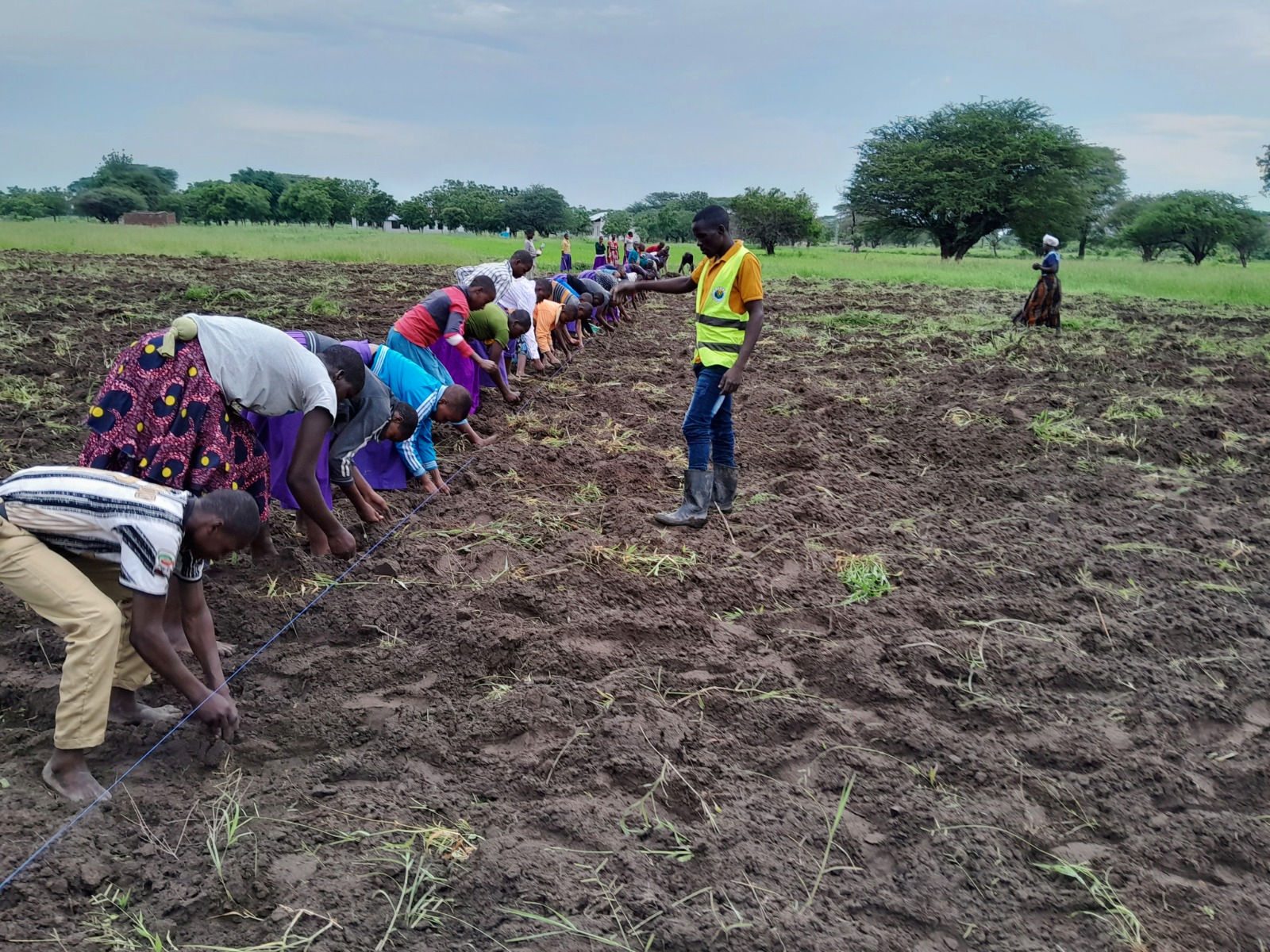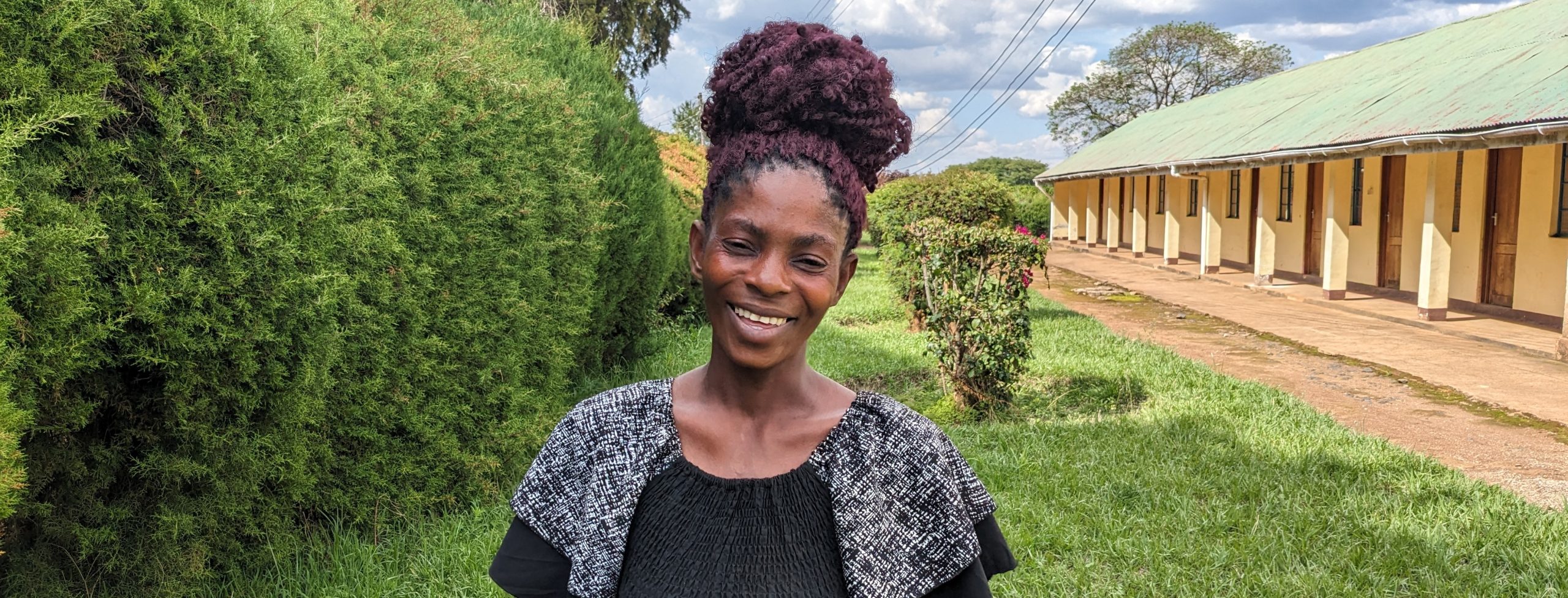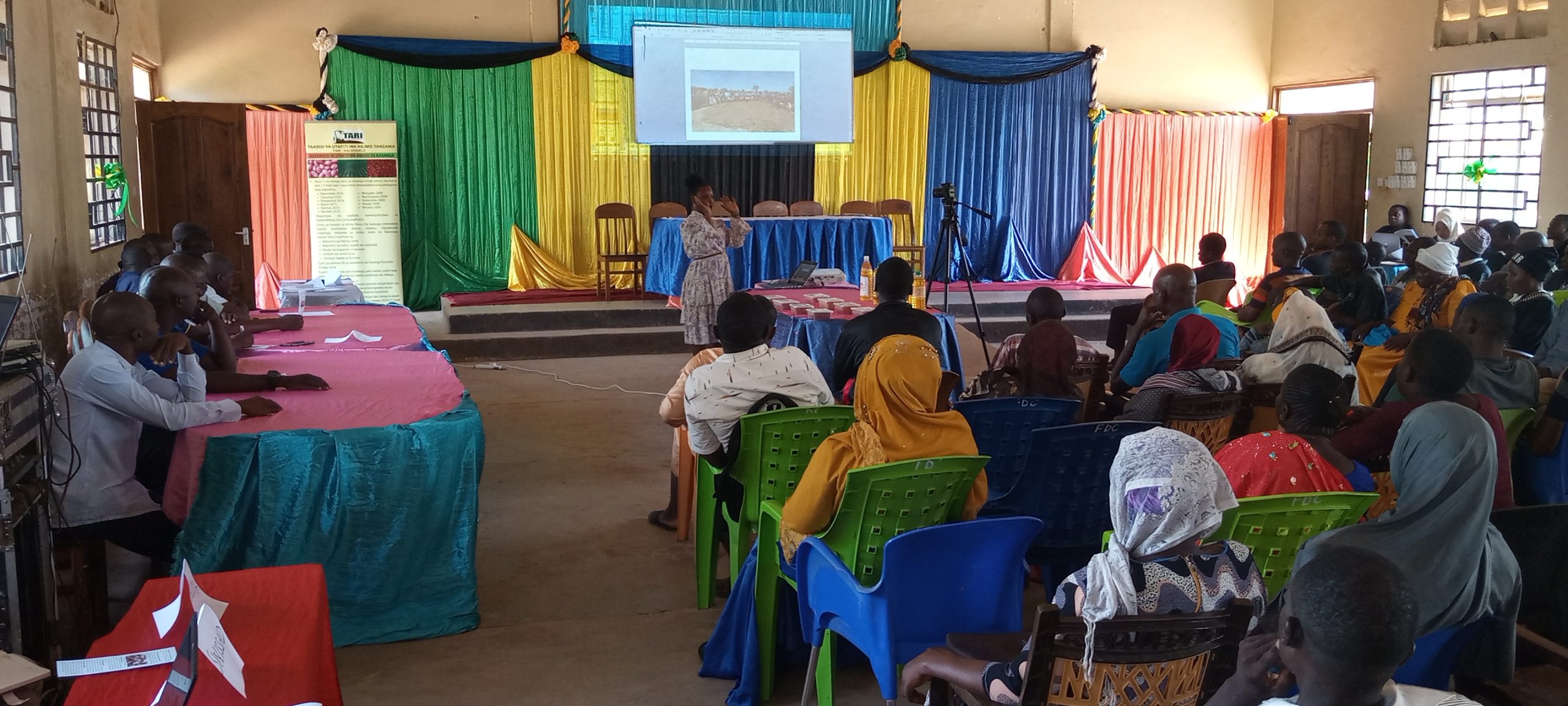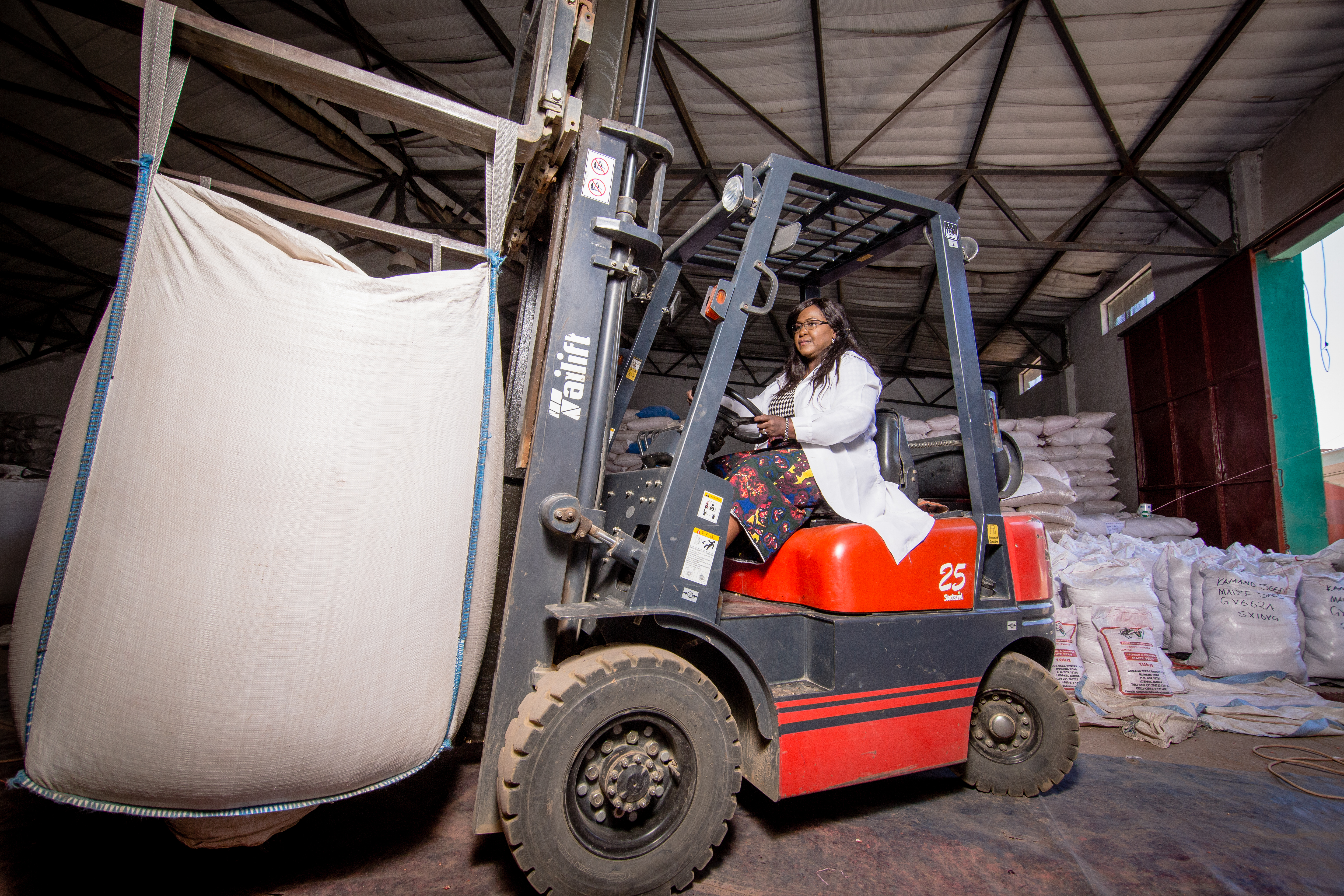The Songwe Region in Tanzania faces a variety of challenges in its agricultural communities, including low productivity, poor farming practices, and limited access to resources. Low yields from white sorghum, the crop of preference in the area, contribute to food insecurity, and insufficient extension support compounds the challenges for farmers.
Schools in the region face their own problems, with students experiencing a lack of food during certain months, resulting in poor academic performance and attendance. Parents, burdened by financial constraints and the low yields of sorghum, struggle to contribute to the school feeding program, further aggravating the situation. The School Feeding Program provides at least one nutritious meal daily to students in rural Tanzania to combat hunger and enhance academic performance. Most schools in rural areas have enough farmland for learning purposes; by utilizing this land, the program aims to produce food locally, reducing reliance on parental contributions and involving the community in addressing food and nutrition insecurity.
To address these challenges, the Center for Behavior Change and Communication (CBCC), initiated a proactive intervention during the 2022-2023 farming season to increase awareness of improved sorghum seed varieties (TARI SOR 1 and TARI SOR 2) through the school feeding program in Momba district, Tanzania. This collaborative effort between the Tanzania Agricultural Research Institute (TARI), CIMMYT, local seed producers, and the local government aimed to address the persistent food and nutrition insecurity in the area.

One of the key strategies employed by CBCC was using schools as platforms for raising awareness. Schools primarily grow sorghum for food rather than trade, making them ideal places to introduce these new, higher-yielding, and nutritionally valuable seed varieties.
Leveraging school farmland
The Youth and Women Quality Centres (YWQCs) are part of an innovative model implemented through the Dryland Crops Program (DCP) through the Accelerated Varietal Improvement and Seed Systems in Africa (AVISA) project, led by CIMMYT and implemented in partnership with CBCC and TARI. Its goal is to increase the adoption of improved variety and quality seeds among young and female farmers through behavior change interventions, with a focus on sorghum and groundnut improvement in the Songwe Region.
Using schools as focal points for raising awareness, the initiative leveraged the YWQCs to provide extension support and distribute seeds to schools. Training materials tailored to the school environment facilitated practical learning on agronomic practices such as farm preparation, seed selection, planting, fertilizer application, weeding, and pest management.
Mkama Secondary School was one of the first to enroll in the program, setting aside 0.5 acres to demonstrate the performance of TARI sorghum seed varieties. With the use of good agronomic practices, the pilot led to an increase in yield, with 350 kilograms (kg) of sorghum harvested. This was an increased improvement compared to their previous yield of 200 kg per acre on their four-acre farm, representing an increase of approximately 75%.
Concerns raised by teachers about the limited yield of local seeds, yielding less than 200 kg per acre, necessitate the urgency of implementing sustainable solutions. The low productivity observed on school farms is also attributed to poor farming practices and inadequate extension support.
Growing these new varieties offers many practical benefits. The increased yield enabled the school to provide lunch to its 129 students during the critical period when food insecurity is most pronounced (October-April). “The new improved sorghum varieties have higher yields, and TARI SOR 2 makes good Ugali,” said Johnas Marwa, the school headmaster. Motivated by their success, the school will plant TARI SOR 1 and TARI SOR 2 on all four acres of their farm during the 2023-2024 season.
Community-wide benefits
The project’s success also inspired confidence in the broader community, leading to a surge in demand for the new sorghum seeds. Consequently, eight seed producer groups and five individual seed producers decided to cultivate these improved varieties in the coming season.
Initially, some community members were hesitant to adopt the new varieties because they were not as white as the traditional local seeds. However, the impressive performance of TARI SOR 1 and TARI SOR 2 quickly won them over, capturing the attention of both farmers and parents due to their potential to reduce food insecurity at household level.
The achievements at Mkama Secondary School led to the expansion of the initiative across 19 additional schools in 14 villages. These schools were chosen based on their willingness to participate and the availability of their farmland. Out of the schools involved, only five produced sorghum on their farms, with the rest relying on parental contributions for the feeding program, but they all relied upon sorghum as the main source of food. Some primary schools only provided porridge, while most of the secondary schools only offered lunch.
Across the 19 schools, a total of 58 acres were allocated for farming sorghum. The project provided 190 kg of seeds, 21% of which were the Macia variety, a popular choice because of its whitish appearance and marketability.
Emmanuel Mwenda, national sorghum coordinator at TARI, said, “This intervention is one of a kind and will bring a huge impact to farmer communities in Momba district.”
Project legacy
The initiative has already had a significant impact and will continue to do so for future planting seasons and generations. “Given the level of effort and investment by partners, in the next season, 4 out of 10 farmers purchasing improved seed at YWQCs will choose either TARI SOR 1 or 2,” said Michel Amson from CBCC.
More than 2,000 students and 50 teachers were trained in agronomic practices by dedicated youth champions. This training caused a ripple effect, with parents visiting YWQC to purchase quality seeds too for growing on their own land.
To ensure the project’s sustainability and longevity, education officers will work with more schools and YWQCs would provide seeds on credit, with schools repaying after harvest to make the improved varieties more accessible when they are needed most.
“This initiative not only improves nutrition and food security for school children, but also benefits the wider community by increasing yields and extending meal provision periods. The collaborative efforts of various stakeholders have been instrumental in driving the success of this initiative”, says Chris Ojiewo, seeds systems lead at CIMMYT.

 Capacity development
Capacity development 
